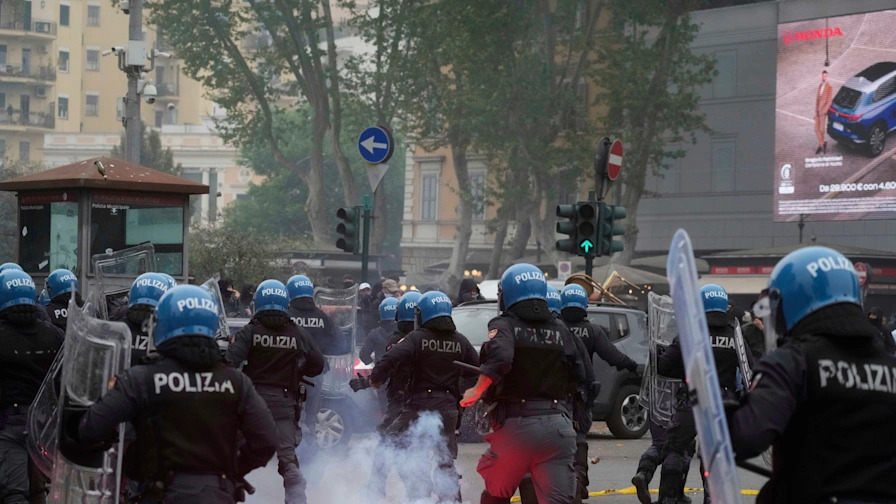The picturesque streets of Nice, usually bustling with tourists and the gentle rhythm of the French Riviera, descended into an unexpected chaos last night. What should have been a vibrant prelude to a high-stakes Europa League match between OGC Nice and AS Roma instead became a grim scene of urban skirmishes, culminating in the detention of over a hundred Italian football supporters.
A Night of Disruption and Detentions
As the clock neared 10:30 PM, the serene atmosphere around Piazza Massena and Corso Saleya was shattered. Groups identified as «ultras» from AS Roma clashed violently with local French fans. The immediate aftermath was stark: 102 «Giallorossi» (Roma) ultras were detained, and police seized an arsenal of crude weapons including iron bars and sticks. The city`s pubs, anticipating further trouble, promptly pulled down their shutters, cutting short a potential evening of camaraderie, or perhaps, preventing greater calamity.
The incidents have cast a long, unpleasant shadow over tonight`s Europa League fixture, turning the spotlight from tactical matchups to public order concerns. For residents and genuine football enthusiasts, the disruption was a rude awakening to the often-ugly underbelly of the beautiful game.
The Tangled Web of Football Rivalries
But why Nice? And why Roma? The answer, as is often the case in European football, lies in a complex tapestry of allegiances and historic animosities. The OGC Nice ultras maintain a strong «gemellaggio» (twinning) with Inter Milan. This alliance, by extension, places them in a position of «friendship» with Lazio, AS Roma`s fiercest cross-city rival. It`s a chain reaction of animosity: if you`re friends with my enemy`s friend, you`re my enemy.
The chants that reportedly echoed through the streets – «A Roma solo la Lazio» (In Rome, only Lazio) – were not mere taunts; they were a deliberate, inflammatory declaration of allegiance designed to provoke. Such is the meticulous (and rather tribal) logic of ultra culture, where geographical distance does little to dampen the fires of rivalry.
Security on High Alert
In response to the escalating tension, French authorities deployed over 200 police officers, a testament to the perceived threat. Their efforts continue today, with patrols around designated «meeting points» for fans. An estimated 1,700 Roma supporters are expected to descend upon Nice for the match, with a significant number potentially arriving without tickets – a known recipe for friction outside stadium perimeters.
Thankfully, the AS Roma team itself remained undisturbed. Two police vans were stationed outside their airport hotel, ensuring the players enjoyed a peaceful night, spared the «wake-up calls» by local ultras that have plagued previous European away games. The team bus to the Allianz Riviera will receive a full police escort, a sobering reminder that for some, the journey to the stadium is as fraught with peril as the match itself.
Beyond the Pitch: A Costly Passion
The events in Nice serve as a stark, if familiar, reminder of the persistent challenges faced by European football. While the vast majority of fans travel to support their teams and enjoy the spectacle, a vocal and violent minority consistently hijacks the experience. This «passion,» it seems, often manifests less as fervent encouragement and more as a destructive urge to confront and dominate.
The cost is substantial: to the host cities that must divert enormous resources to security, to local businesses forced to close, and most importantly, to the reputation of the sport. One might wonder if these «ultras» derive more satisfaction from clashes in a city square than from a well-played match on the pitch. The irony, of course, is that these incidents often overshadow the very game they claim to support, reducing complex football narratives to simple tales of street brawls.
As tonight`s match kicks off, the hope remains that the focus will shift back to the ninety minutes of football. But for the city of Nice, and for many who follow the sport, the scars of last night`s folly will linger long after the final whistle.

